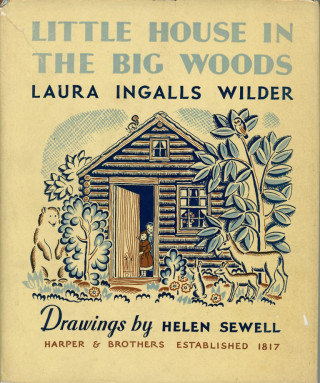Of all the books my wife and I have read to our now seven-year-old daughter, none has taught as much about life and liberty as the Little House series by Laura Ingalls Wilder. Most literature that enthralls children, like The Lord of the Rings and Harry Potter, is fantasy, but this series, being a memoir of the Ingalls family when Wilder was growing up, is based in fact—even if softened by a degree of nostalgia with a modified timeline and composite characters. Her family members cannot call on magic but only on their own inner strengths to survive in a world of outer scarcity.
This austere setting makes the series the best introduction for a child to virtues indispensable to liberty—self-reliance, personal responsibility, and respect for individual choice. The difficult life her family led also naturally prompts discussion of how and why our lives have become so much more comfortable today. While these transformations may seem akin to magic, they have been brought about by capitalism—another important lesson for a child.
Unfortunately, political scolds now want to cancel Wilder, not only because her characters do not always reflect modern sensibilities, but because she so clearly sets forth the personal and emotional framework for a society of liberty. If they succeed, they will eliminate a resource that shows how to build a resilient self—the kind necessary to a free society. This story of resilience is particularly timely given the widespread recognition that children today suffer from an emotional fragility that makes it difficult to accept criticism, spring back from reverses, and tolerate arguments on topics essential to democratic deliberation.
From the very first book, Little House in Big Woods, Ingalls remembers her five-year-old self as struggling with self-control. She believes that Mary, her elder sister, is both better behaved and more beautiful, with golden curls compared to her dirty brown locks. Her parents, Ma and Pa, try to keep her within bounds by a combination of love and occasional physical chastisement. Even at this early age, she helps with small chores, like churning butter. The Ingalls family has almost nothing saved. Pa can obtain the fabric for clothes and small treats like candy only by trading the fur of the animals he traps. Still, there is leisure in the evening and plenty of singing with Pa leading on his fiddle. Laura is fascinated in particular by the stories that Pa tells to while away the dark winter nights. Sometimes Laura wants to complain about their hardships but she learns to stop herself and instead contribute to family merriment.
